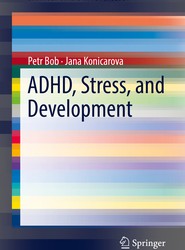(To see other currencies, click on price)
MORE ABOUT THIS BOOK
Main description:
The debate between theist and atheist is an old one and has recently become a highly publicized one. There are some well known proponents of arguments on both sides. To provide a different perspective this book takes a psychoanalytically based evolutionary view, presenting an entirely original theoretical concept. It introduces an epigenetic component to the discussion of God/no God within the context of evolutionary processes at the point where a thinking brain appears -- a cerebral cortex characteristic of homosapien. Therefore, it joins evolutionary phenomena with psychological realities for survival and safety, for empowerment and the absence of disempowerment. Research is cited to show that such instinctive survival behavior involves several prototypical behavioral categories relevant to all organisms from amoeba to man. Freud, Darwin, Gould, and the major historical figures of the God/no God debate are included throughout, and the point is made that environmental conditions can produce biological effects and this is the essence of the proposed epigenetical context of the debate. Therefore, this volume concerns itself with exploring the question of whether there is a God-gene or whether God is discovered epigentically in a psycho/evolutionary context. In either case, this book does not argue for the existence or non-existence of God. Rather, it introduces a new dimension to the debate a psycho/evolutionary one.
Contents:
Introduction.- God and Important Anatomical Vestigal Structure.- God and Ontological Anxiety.- The personality of a God that can be possibly known.- God, Group, and Blame-Psychology.- God and Human Personality.- The Inconclusion.
PRODUCT DETAILS
Publisher: Springer (Springer-Verlag New York Inc.)
Publication date: August, 2012
Pages: 114
Weight: 454g
Availability: Available
Subcategories: Psychotherapy
From the same series















